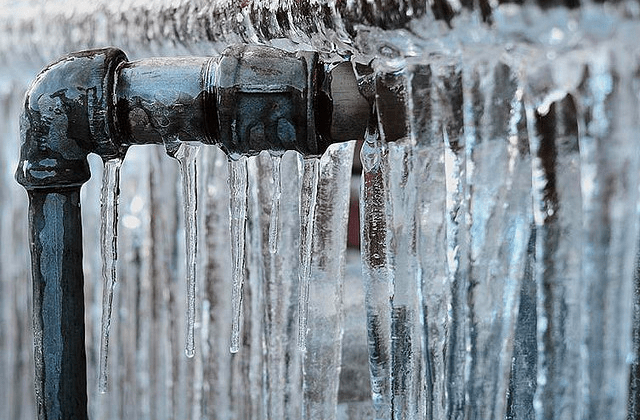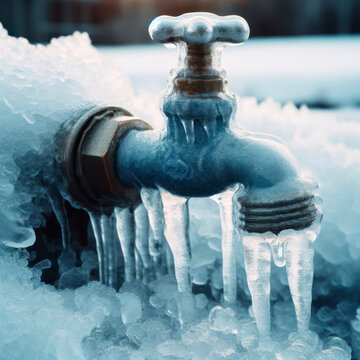Listed here below you can discover a good deal of dependable data on the subject of Preventing and dealing with frozen pipes.

Winter can ruin your pipes, specifically by freezing pipes. Right here's how to stop it from occurring and what to do if it does.
Intro
As temperature levels drop, the threat of frozen pipes increases, potentially causing expensive repair services and water damages. Comprehending exactly how to avoid icy pipes is vital for property owners in cool climates.
Avoidance Tips
Shielding vulnerable pipelines
Wrap pipelines in insulation sleeves or utilize warm tape to protect them from freezing temperature levels. Concentrate on pipelines in unheated or external areas of the home.
Home heating strategies
Maintain interior areas properly warmed, particularly areas with pipes. Open closet doors to permit warm air to distribute around pipes under sinks.
How to determine frozen pipelines
Look for reduced water flow from faucets, unusual odors or sounds from pipelines, and visible frost on subjected pipes.
Long-Term Solutions
Structural adjustments
Take into consideration rerouting pipes away from exterior walls or unheated locations. Include extra insulation to attics, basements, and crawl spaces.
Upgrading insulation
Invest in high-quality insulation for pipelines, attics, and wall surfaces. Proper insulation aids preserve consistent temperature levels and decreases the danger of icy pipes.
Protecting Outdoor Pipes
Yard tubes and exterior faucets
Disconnect and drain yard hoses prior to winter season. Install frost-proof faucets or cover outdoor faucets with insulated caps.
Comprehending Icy Pipes
What creates pipes to freeze?
Pipelines ice up when revealed to temperatures below 32 ° F (0 ° C) for expanded periods. As water inside the pipelines freezes, it broadens, putting pressure on the pipe wall surfaces and potentially triggering them to break.
Dangers and damages
Frozen pipes can result in water supply interruptions, property damages, and pricey repair work. Ruptured pipes can flood homes and trigger comprehensive structural damage.
Indications of Frozen Piping
Identifying frozen pipelines early can prevent them from rupturing.
What to Do If Your Pipelines Freeze
Immediate activities to take
If you presume icy pipes, keep faucets available to alleviate pressure as the ice melts. Utilize a hairdryer or towels soaked in warm water to thaw pipes slowly.
Final thought
Preventing icy pipelines calls for positive procedures and quick reactions. By recognizing the causes, indications, and preventive measures, homeowners can protect their pipes throughout cold weather.
Helpful Tips to Prevent Frozen Pipes this Winter
UNDERSTANDING THE BASICS: WHY PIPES FREEZE AND WHY IT’S A PROBLEM
Water freezing inside pipes is common during the winter months, but understanding why pipes freeze, and the potential problems it can cause is crucial in preventing such incidents. This section will delve into the basics of why pipes freeze and the associated problems that may arise.
THE SCIENCE BEHIND FROZEN PIPES
When water reaches freezing temperatures, it undergoes a physical transformation and solidifies into ice. This expansion of water as it freezes is the primary reason pipes can burst. As the water inside the pipe freezes, it expands, creating immense pressure on the walls. If the pressure becomes too great, the pipe can crack or rupture, leading to leaks and water damage.
FACTORS THAT CONTRIBUTE TO PIPE FREEZING
Low Temperatures: Extremely cold weather, especially below freezing, increases the risk of pipes freezing. Uninsulated or Poorly Insulated Pipes: Pipes located in unheated areas, such as basements, crawl spaces, or attics, are more prone to freezing. Insufficient insulation or lack of insulation altogether exacerbates the problem. Exterior Wall Exposure: Pipes running along exterior walls are susceptible to freezing as they encounter colder temperatures outside. Lack of Heating or Temperature Regulation: Inadequate heating or inconsistent temperature control in your home can contribute to frozen pipes. PROBLEMS CAUSED BY FROZEN PIPES
- Pipe Bursting: As mentioned earlier, the expansion of water as it freezes can cause pipes to burst, resulting in significant water damage.
- Water Damage: When pipes burst, it can lead to flooding and water damage to your property, including walls, ceilings, flooring, and personal belongings.
- Structural Damage: Prolonged exposure to water from burst pipes can compromise the structural integrity of your home, leading to costly repairs.
- Mold and Mildew Growth: Excess moisture from water damage can create a favorable environment for mold and mildew growth, posing health risks to occupants.
- Disrupted Water Supply: Frozen pipes can also result in a complete or partial loss of water supply until the issue is resolved.
WHY CERTAIN PIPES ARE MORE PRONE TO FREEZING
- Location: Pipes located in unheated or poorly insulated areas, such as basements, crawl spaces, attics, or exterior walls, are at higher risk of freezing.
- Exterior Pipes: Outdoor pipes, such as those used for irrigation or exposed plumbing, are particularly vulnerable to freezing as they are directly exposed to the elements.
- Supply Lines: Pipes that carry water from the main water supply into your home, including the main water line, are critical to protect as freezing in these lines can affect your entire plumbing system.
- Underground Pipes: Pipes buried underground, such as those connected to sprinkler systems or outdoor faucets, can be susceptible to freezing if not properly insulated.
https://busybusy.com/blog/helpful-tips-to-prevent-frozen-pipes-this-winter/

Do you enjoy reading about How to Prevent Your Pipes From Freezing? Post feedback further down. We will be delighted to find out your thoughts about this blog. Hoping that you come back again later on. Those who enjoyed our page plz remember to pass it around. Many thanks for your time spent reading it.
Request A Quote